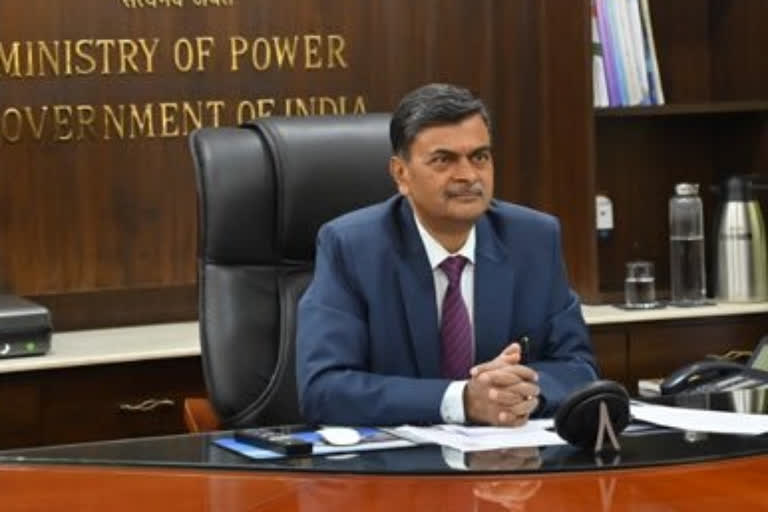New Delhi: Union Minister for Power, New and Renewable Energy RK Singh while attending a meeting said that in the wake of the energy transition towards clean energy, the future of the Indian power sector is being developed on the pillars of resilience and reliability towards ensuring energy security and adequacy for meeting the growing energy demand of the country. The meeting of the Parliamentary Consultative Committee of the Members of Parliament for the Ministry of Power was held in New Delhi on Wednesday.
"India is committed to reducing its carbon footprint in line with the global response to tackle challenges of climate change. India's approach to growth in the power sector is resonating with the global demand for a shift towards renewable generation. India stands committed to reducing the emissions intensity of its GDP by 45 per cent by 2030, from 2005 level and achieve about 50 per cent cumulative electric power installed capacity from non-fossil fuel based energy resources by 2030," said RK Singh.
Singh said that the Central government provided 2.90 crore connections which has increased consumption resulting in increased demand for power. "We have achieved our NDC commitments of 40 per cent non-fossil fuel generation made in COP26 way before the committed deadline, that is, nine years ahead of the target date," said Singh.
Also read: Bihar govt is hiding the death toll of Saran hooch tragedy: RK Singh
"Today the generation from non-fossil fuel stands at 42 per cent," he said. "We have now made a commitment of non-fossil fuel generation of 50 per cent by 2030 which we shall achieve," he said. "The Indian power sector has come a long way in the past decade, transforming from a power deficit to a power surplus nation. A series of concerted measures led to a 45 per cent increase in generation capacity from 275 GW in March 2015 to 400 GW in March 2022," he said.
He said that an energy storage system can prove useful in combating the challenges posed by integrating intermittent generation resources into the grid and the grid stability issues due to large fluctuations in demand, to ensure the quality of supply on a real-time basis, by storing excess generation over different time horizons. "The share of non-fossil fuel-based generation capacity in the total installed capacity of the country is likely to increase from around 42.3 per cent as on October 31 this year to around 64.7 per cent by 2029-30," he said.



